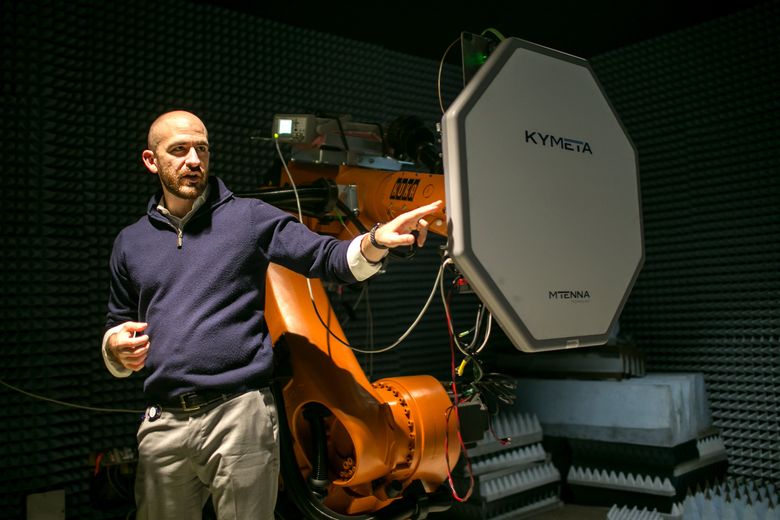Big, spinning satellite dishes that adorn boats and military trucks, connecting them to the internet wherever they roam, are heavy, clunky and not ideal for the future of the connected car.
That’s where Redmond-based Kymeta comes in with its flat-panel antenna technology, meant to bring fast, satellite-transmitted internet connections to cars, trains and boats using a lightweight antenna.
Kymeta announced Tuesday an expanded partnership with satellite company Intelsat that will allow customers to purchase internet data plans directly through Kymeta. That means when the company officially launches sales of its antennas in May, customers will be able to mount the small antennas and sign up for internet service all from the same company.
The service, called KALO, will be sold much like a cellular plan. Intelsat has 50 satellites that can transmit to the Earth, all roughly the size of a school bus.
The satellite dishes we are used to seeing mounted on the sides or roofs of houses are really only useful for a fixed setting because of size and reception limitations, Kymeta CEO Nathan Kundtz explained. Something else is needed for a boat, car, truck — really anything that moves.
With Kymeta’s flat-panel antenna technology, “We have an opportunity to make a huge dent in the industry,” Kundtz said.
Kymeta certainly has the backing to do so. The company, which spun out of Bellevue patent-licensing company Intellectual Ventures in 2012, has raised $124 million from investors, including Bill Gates.
Kymeta’s flat-panel antenna uses metamaterial technology.
The inner part of the antenna, made of liquid crystals, moves slightly to point toward the nearest satellite, wherever it might be. It’s guided by inexpensive sensors like those used on cellphones and Kymeta-built software.
Read more at The Seattle Times
